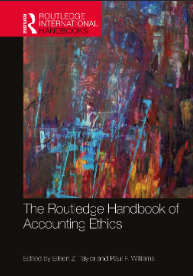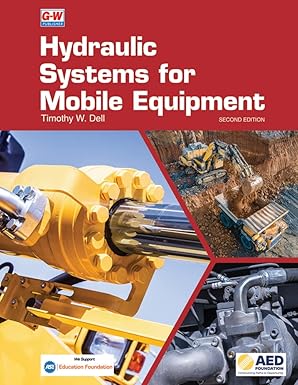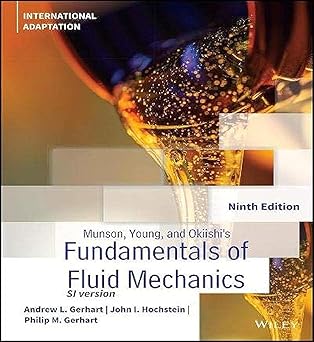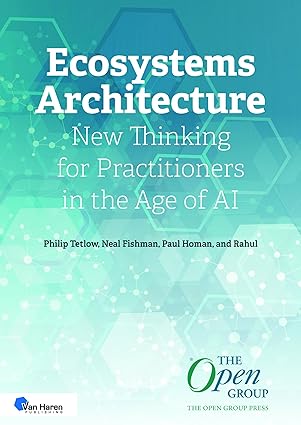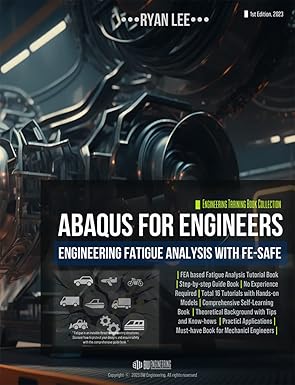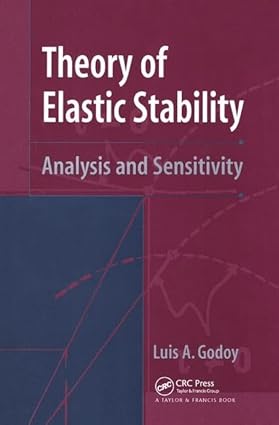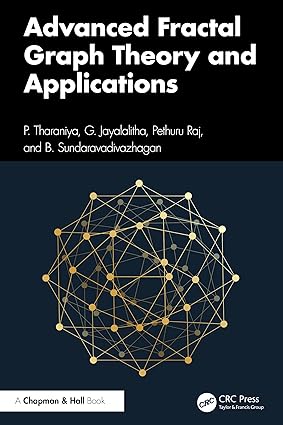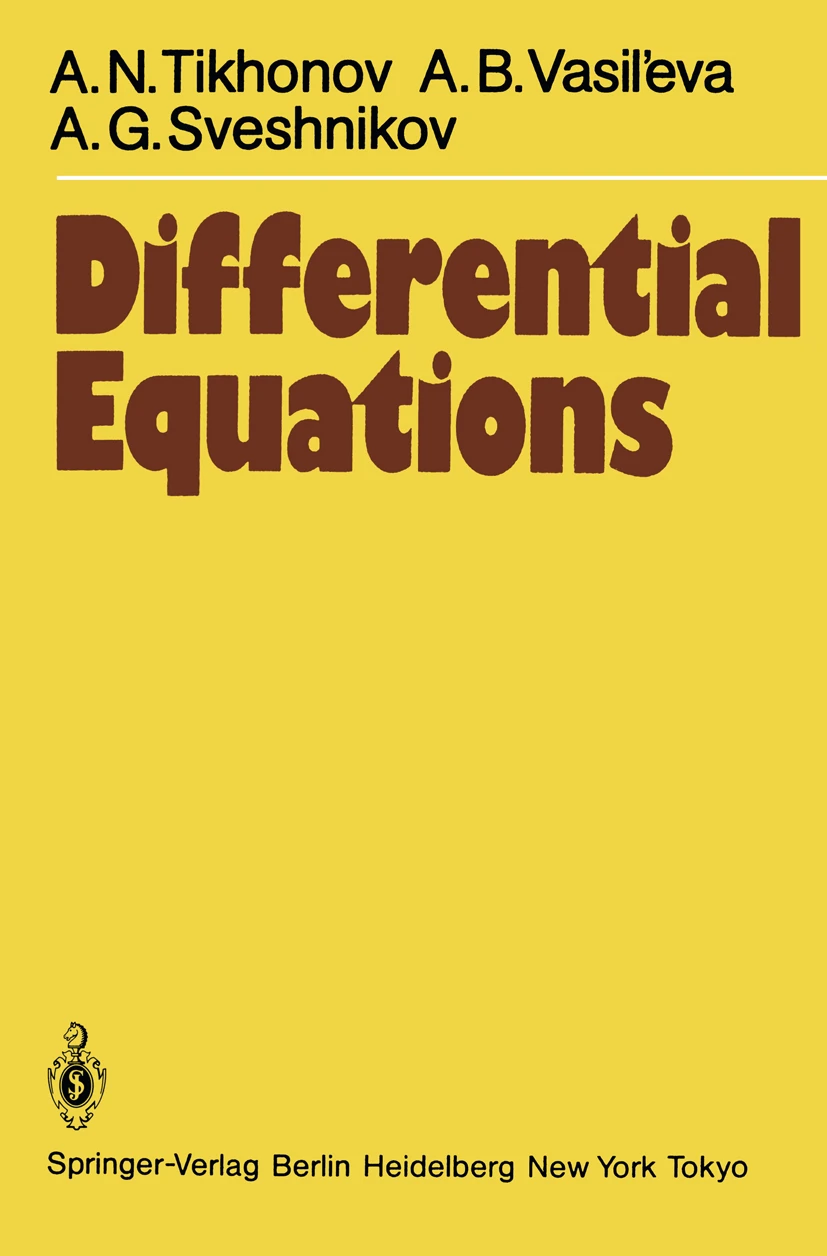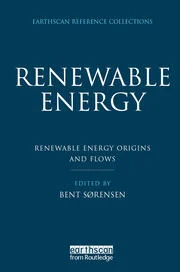PART II Alternative perspectives for thinking about accounting ethics 53 Introduction High-profile ethical failures during the 1960s and 1970s resulted in increasing regulation and oversight of the accounting profession (Cowton 2017); yet scandals have continued to plague the profession in more recent decades. Accounting is an art (techne) requiring considerable professional judgment, and lists of rules cannot anticipate every situation (Melé 2005; West 2017). In fact, accounting rules often require significant professional judgment to interpret, and these rules require frequent amendments to accommodate new social trends and eco- nomic practices. Therefore, regulations that focus on specific actions may be an insufficient foundation upon which to build the profession (Cowton 2017; West 2017, 2018a). Virtue ethics represents an alternative perspective that focuses on the character of the professional rather than specific actions or outcomes. Virtue ethics starts by asking what it means to be a good accountant. Then it asks which intellectual and moral virtues an accountant must develop in order to act in the best way. Virtues should make it easier, or even instinctive, for professionals to serve their clients’ needs and the public interest even in unique or novel situations. However, we need to establish which virtues accountants need and how they may develop them. This requires research by subject matter experts who understand the account- ing profession as well as virtue ethics. Virtue ethics is one of the three leading schools of ethics, along with deontology and consequentialism (Besser-Jones and Slote 2015). Systems of ethics based upon virtue were the norm in ancient and medieval Western philosophy (Frede 2015) and have remained in favor in non-Western ethics.1 However, virtue ethics is essentially a contemporary movement that began as a critique of both deontology and consequentialism (Anscombe 1958; Hursthouse and Pettigrove 2017; Snow 2017).2 Therefore, perhaps the simplest way to understand where contemporary virtue ethics stands is by contrasting its position with those of deontology and consequentialism. Whereas deontology asks what a person should do, virtue ethics asks what a person should be (MacKinnon and Fiala 2014). So virtue ethics places primacy on the goodness of a person’s character rather than the rightness of a person’s actions (Oakley and Cocking 2001).3 Virtue ethics is certainly concerned with the consequences of actions; however, virtue ethics does not require the common good to be maximized by an act for that act to be considered “good” 4 VIRTUE ETHICS AND THE ACCOUNTING PROFESSION Marc Peter Neri Marc Peter Neri 54 (Nussbaum 1988). Rather, virtue ethics places primacy on the development of a person’s character, because only a person of good character can live in a state of human flourishing (Kraut 2018). Accounting ethics research happens to have been dominated by deontology and conse- quentialism. The Defining Issues Test (DIT) has had an overwhelming influence on behav- ioral research in accounting ethics (Bailey, Scott, and Thoma 2010). The DIT proposes a six-stage hierarchy of morality wherein the highest levels of moral development are exemplified by utilitarian consequentialism (stage 5) and deontology (stage 6), the highest level of moral development (Rest 1994). The DIT questions also happen to focus on actions and outcomes. Consequently, there has been relatively little attention paid to virtue ethics within accounting research. Virtue ethics can certainly be applied to business, and there are several notable contributions from management scholars (Alzola 2015; Audi 2012; Moore 2005a, 2005b; Murphy 1999; Whetstone 2001). There have also been a few notable exceptions within accounting literature. These papers have considered virtue ethics as it relates to the profession as a whole (Francis 1990; Melé 2005), accounting education (Melé 2005; Mintz 1995, 2006), and tax practice (West 2018b). In addition, at least one accounting ethics textbook emphasizes the virtue ethics approach (Cheffers and Pakaluk 2007). More recently, some accounting scholars have begun to address how virtue ethics might inform codes of professional conduct (Cowton 2017; West 2017, 2018a). They argue that scandals continue to occur despite increased regulation and oversight of the profession (Cowton 2017; West 2017, 2018a). Since accounting is an art, requiring considerable judgment, lists of rules focusing on outcomes may be insufficient to anticipate every situation (Melé 2005; West 2017). While it may be unwise to dispense entirely with lists of rules, virtue ethics may provide a more nuanced philosophical underpinning for a code of ethics through its focus on profes- sional excellence and character (West 2018). Contemporary virtue ethics does not present a unified theory (Sanford 2015). While many draw from Aristotelean ethics (Snow 2017)4, others draw on diverse traditions, such as Confucianism (Loy 2014; Luo 2015; Sim 2015), Buddhism (Goodman 2015; Adams 2017) and Hinduism (Bilimoria 2014; Perrett and Pettigrove 2015). In an increasingly mul- ticultural world, one of the benefits of adopting a virtue ethics approach may be the fact that theories of virtue already exist in so many different cultures around the world. Reading these different accounts, it is apparent that the lists of virtues share more similarities than differences. The review of existing accounting literature in this chapter suggests that accounting schol- ars have focused primarily on two works to date: Aristotle’s Nicomachean Ethics (NE) and Alasdair MacIntyre’s After Virtue (AV). Since Aristotle was the first thinker to provide a systematic, comprehensive study of virtue (Frede 2015), NE provides a useful starting point for a discussion of virtue. MacIntyre aims to extend Aristotelean ethics. So AV provides an interesting insight into how contemporary virtue ethics has revived the study of virtue and contributed its own ideas. Therefore, I shall start my discussion with Aristotle’s concept of virtue and, drawing on the work of other accounting researchers, attempt to formulate a list of essential virtues for accountants. Then I shall discuss some of the important concepts intro- duced by MacIntyre, including the concepts of a practice and internal goods. This frames the discussion of accounting as a practice that can help develop the essential virtues. As I do this, I shall point to some opportunities for future research, accounting education, and professional development. Virtue ethics and accounting 55 Aristotle’s concept of virtue Aristotle seems to provide the accounting researcher a pragmatic and applicable concept of virtue, since the stated outcomes of virtue are that a person will be good and will do their own work well: The virtue (arete) of a human being would be the active condition (hexis) from which one becomes a good human being and from which one will yield up one’s own work well. (NE, II 6, 1106a23–25) Aristotle’s word for virtue, arete, means excellence. But excellence does not imply some kind of exclusive ability that only a few can achieve (Frede 2015). Rather, arete simply means that something is fit for its purpose. To illustrate excellence, Aristotle uses the example of a knife that is sufficiently sharp to cut well. For this reason, Aristotle’s virtue ethics is teleological; it is based upon the notion that humans have an ultimate purpose (telos), namely a life of excellence. The passage cited refers to virtue as an active condition (hexis). The word hexis has been translated variously as “state of character” and as “disposition of character,” and virtue has been identified as both a character trait (Audi 2015; Miller 2018) and a state (Alzola 2018) in the lit- erature. However, the term hexis suggests an “active condition” of being ready to act in a certain way, like an Olympic athlete coiled, ready to throw a discus (Sachs 2002). Virtue is similar to a disposition in the sense that it makes one ready to choose the right course of action when a situation to exercise virtue arises (NE II 6, 1107a).5 The suggestion that a person has one ultimate purpose does not mean that there is only one important virtue to consider. The virtues are irreducibly plural (Oakley and Cocking 2001). And human excellence does not imply only moral virtues; Aristotle makes a distinction between moral virtues (ethike) and intellectual virtues (dianotike). Each sphere, moral and intel- lectual, is further divided into numerous virtues. The intellectual virtues include demonstrative knowledge, craftsmanship, practical wisdom, good intuition, and philosophical wisdom. The moral virtues include courage, moderation, generosity, magnificence, magnanimity, and justice (Pakaluk 2005). The intellectual virtues are developed through teaching and practice. Aristotle is very careful to point out that practical wisdom (phronesis) is developed only through practical experience. The moral virtues are developed through habit (NE II 1, 1103a11–25). Therefore, we are not virtuous by nature, but we become virtuous by actively pursuing virtue, just as a craftsman becomes expert by practicing their craft. For instance, we become courageous by acting coura- geously (NE II 1, 1103b2–3). And when we practice all the moral (ethike) virtues, we develop excellent character (ethos). Because the virtues are acquired through practice, virtue has also been described as a skill (Haidt and Joseph 2007; Stichter 2018). Intellectual virtues and practical wisdom Intellectual virtues are “active conditions of the soul (hexis) which can disclose the truth” (Sachs 2002). This definition suggests their importance to the accounting profession. Some of the intellectual virtues that Aristotle names clearly relate to accounting, such as domain knowledge (episteme), and technical knowledge (techne). Some of the intellectual virtues appear to parallel Bloom’s Taxonomy of critical thinking skills, which has influenced accounting education and Marc Peter Neri 56 the professional examinations in the United States. And some help a professional govern their moral actions, specifically the intellectual virtue of practical wisdom (phronesis). The intellectual virtues Aristotle mentions in his Nicomachean Ethics are listed in Table 4.1. Table 4.1 also offers examples from the accounting profession that exemplify each of the intellectual virtues. Art (techne) includes the ability to use processes, tools, and judgment. This is important to accountants when selecting and analyzing financial data, pulling together financial reports, auditing, or tax planning (West 2017). The virtues of intellect (nous) and knowledge (episteme) involve the processes of induction and deduction, respectively. Intellect grasps how an example represents a universal rule (Sachs 2002, 108). Knowledge is not just comprehension but the vir- tue of active, deductive thinking in order to achieve understanding of a situation starting from universal rules. Theoretical wisdom draws on both intellect and knowledge. Aristotle refers to wisdom as “knowledge with its head on” (NE VI 7, 1141a 20), while the other intellectual virtues support theoretical wisdom’s contemplative process by helping a person think things through issues (eubolia), evaluate the actions of others (sunesis), and develop opinions (gnome). The Aristotelean understanding of the intellectual virtues is not synonymous with Bloom’s taxonomy of critical thinking skills. However, some apparent parallels would be worth investi- gating further given the attention that Bloom’s taxonomy has received in the profession. Intel- lect (nous) involves induction, so one could liken it to comprehension in Bloom’s taxonomy. Since knowledge (episteme) involves deduction, it resembles analysis in Bloom’s taxonomy rather than what is referred to as knowledge in the taxonomy. Theoretical wisdom resembles the higher levels of critical thinking that bring ideas together, such as synthesis and evaluation. However, these conjectures should be examined further. Practical wisdom (phronesis) is different from other intellectual virtues. While it is concerned with figuring out the truth, it is also concerned with action (Sachs 2002, 106). Since it is con- cerned with good actions, it helps direct the moral virtues: Virtue is an active condition that makes one apt at choosing, consisting of a mean condition in relation to us, which is determined by a proportion and by the means by which a person with practical wisdom would determine it.
چکیده فارسی
بخش دوم دیدگاههای جایگزین برای تفکر در مورد اخلاق حسابداری 53 مقدمه شکستهای اخلاقی برجسته در طول دهههای 1960 و 1970 منجر به افزایش مقررات و نظارت بر حرفه حسابداری شد (کاوتن 2017). با این حال رسواییها در دهههای اخیر همچنان دامنگیر این حرفه شدهاند. حسابداری یک هنر (تکنولوژی) است که نیاز به قضاوت حرفه ای قابل توجهی دارد و فهرست قوانین نمی تواند هر موقعیتی را پیش بینی کند (Melé 2005؛ West 2017). در واقع، قوانین حسابداری اغلب به قضاوت حرفه ای قابل توجهی برای تفسیر نیاز دارند، و این قوانین مستلزم اصلاحات مکرر برای انطباق با روندهای اجتماعی و شیوه های جدید اقتصادی هستند. بنابراین، مقرراتی که بر اقدامات خاص تمرکز دارند، ممکن است پایه کافی برای ایجاد این حرفه نباشند (Cowton 2017; West 2017، 2018a). اخلاق فضیلت نشان دهنده یک دیدگاه جایگزین است که به جای اعمال یا نتایج خاص، بر شخصیت حرفه ای تمرکز می کند. اخلاق فضیلتی با این سوال شروع می شود که یک حسابدار خوب بودن به چه معناست. سپس می پرسد که یک حسابدار باید کدام فضایل فکری و اخلاقی را توسعه دهد تا به بهترین نحو عمل کند. فضائل باید آسانتر یا حتی غریزی باشد تا متخصصان به نیازهای مشتریان خود و منافع عمومی حتی در موقعیتهای منحصربهفرد یا جدید خدمت کنند. با این حال، ما باید مشخص کنیم که حسابداران به چه فضیلت هایی نیاز دارند و چگونه می توانند آنها را توسعه دهند. این امر مستلزم تحقیق توسط کارشناسان موضوعی است که حرفه حسابداری و همچنین اخلاق فضیلت را درک می کنند. اخلاق فضیلت یکی از سه مکتب اخلاقی پیشرو، همراه با deontology و نتیجهگرایی است (Besser-Jones and Slote 2015). نظامهای اخلاقی مبتنی بر فضیلت در فلسفه غرب باستان و قرون وسطی هنجار بودند (فرد 2015) و در اخلاق غیرغربی نیز به نفع خود باقی ماندهاند.1 با این حال، اخلاق فضیلت اساساً یک جنبش معاصر است که به عنوان نقد هر دوی دئونتولوژی و نتیجهگرایی آغاز شد. (Anscombe 1958; Hursthouse and Pettigrove 2017; Snow 2017). بنابراین، شاید سادهترین راه برای درک جایگاه اخلاق فضیلت معاصر، تضاد موقعیت آن با جایگاههای deontology و نتیجهگرایی باشد. در حالی که deontology می پرسد که یک فرد چه کاری باید انجام دهد، اخلاق فضیلت می پرسد که یک فرد چگونه باید باشد (MacKinnon and Fiala 2014). بنابراین، اخلاق فضیلتی، به جای درستی اعمال یک فرد، اولویت را به خوبی شخصیت یک فرد میدهد (اوکلی و کاکینگ، 2001). با این حال، اخلاق فضیلتی مستلزم آن نیست که خیر عمومی با یک عمل به حداکثر برسد تا آن عمل «خوب» تلقی شود. در عوض، اخلاق فضیلت بر رشد شخصیت یک فرد اولویت دارد، زیرا فقط یک فرد با شخصیت خوب میتواند در وضعیت شکوفایی انسانی زندگی کند (Kraut 2018). تحقیقات مربوط به اخلاق حسابداری به طور اتفاقی تحت سلطه deontology و نتیجه گرایی بوده است. آزمون تعیین مسائل (DIT) تأثیر زیادی بر تحقیقات رفتاری در اخلاق حسابداری داشته است (بیلی، اسکات و توما 2010). DIT یک سلسله مراتب اخلاقی شش مرحلهای را پیشنهاد میکند که در آن بالاترین سطوح رشد اخلاقی با نتیجهگرایی فایدهگرا (مرحله 5) و deontology (مرحله 6)، بالاترین سطح رشد اخلاقی (Rest 1994) نمونه است. سوالات DIT همچنین بر روی اقدامات و نتایج تمرکز می کنند. در نتیجه، توجه نسبتا کمی به اخلاق فضیلت در تحقیقات حسابداری شده است. اخلاق فضیلت را قطعاً می توان در تجارت به کار برد، و چندین مشارکت قابل توجه از سوی محققان مدیریت وجود دارد (آزولا 2015؛ آئودی 2012؛ مور 2005a، 2005b؛ مورفی 1999؛ وتستون 2001). همچنین چند استثنا قابل توجه در ادبیات حسابداری وجود داشته است. این مقالات اخلاق فضیلت را به عنوان یک کل حرفه در نظر گرفته اند (فرانسیس 1990؛ مله 2005)، آموزش حسابداری (مله 2005؛ مینتز 1995، 2006)، و عملکرد مالیاتی (West 2018b). علاوه بر این، حداقل یک کتاب درسی اخلاق حسابداری بر رویکرد اخلاق فضیلت تأکید دارد (Cheffers and Pakaluk 2007). اخیراً، برخی از محققین حسابداری شروع به پرداختن به این موضوع کردهاند که چگونه اخلاق فضیلتآمیز ممکن است کدهای رفتار حرفهای را ارائه دهد (Cowton 2017; West 2017، 2018a). آنها استدلال می کنند که با وجود افزایش مقررات و نظارت بر این حرفه، رسوایی ها همچنان رخ می دهد (کاوتن 2017؛ غرب 2017، 2018a). از آنجایی که حسابداری یک هنر است و نیاز به قضاوت قابل توجهی دارد، فهرستی از قوانین با تمرکز بر نتایج ممکن است برای پیشبینی هر موقعیت کافی نباشد (Melé 2005؛ West 2017). در حالی که ممکن است عاقلانه نباشد که به طور کامل فهرستی از قوانین را کنار بگذاریم، اخلاق فضیلت ممکن است از طریق تمرکز بر برتری و شخصیت حرفه ای، زیربنای فلسفی ظریف تری را برای یک کد اخلاقی فراهم کند (West 2018). اخلاق فضیلت معاصر یک نظریه واحد ارائه نمی کند (سانفورد 2015). در حالی که بسیاری از اخلاق ارسطویی (Snow 2017)4 استفاده می کنند، برخی دیگر از سنت های متنوعی مانند کنفوسیوس (Loy 2014؛ Luo 2015؛ Sim 2015)، بودیسم (Goodman 2015؛ Adams 2017) و هندوئیسم (Bilimoria2014015) استفاده می کنند. ). در دنیایی که به طور فزاینده ای چند فرهنگی می شود، یکی از مزایای اتخاذ رویکرد اخلاق فضیلت ممکن است این واقعیت باشد که نظریه های فضیلت از قبل در بسیاری از فرهنگ های مختلف در سراسر جهان وجود دارد. با خواندن این گزارشهای مختلف، آشکار میشود که فهرستهای فضایل شباهتهای بیشتری نسبت به تفاوتها دارند. بررسی ادبیات حسابداری موجود در این فصل نشان میدهد که محققان حسابداری عمدتاً بر دو اثر تا به امروز تمرکز کردهاند: اخلاق نیکوماخوس ارسطو (NE) و Alasdair MacIntyre's After Virtue (AV). از آنجایی که ارسطو اولین متفکری بود که مطالعه سیستماتیک و جامعی درباره فضیلت ارائه کرد (فرد 2015)، NE نقطه شروع مفیدی برای بحث درباره فضیلت فراهم می کند. مک اینتایر قصد دارد اخلاق ارسطویی را بسط دهد. بنابراین AV بینش جالبی در مورد اینکه چگونه اخلاق فضیلت معاصر مطالعه فضیلت را احیا کرده و به ایده های خود کمک کرده است ارائه می دهد. بنابراین، من بحث خود را با مفهوم فضیلت ارسطو آغاز می کنم و با تکیه بر کار سایر محققان حسابداری، سعی می کنم فهرستی از فضایل ضروری برای حسابداران را تدوین کنم. سپس برخی از مفاهیم مهم معرفی شده توسط مک اینتایر، از جمله مفاهیم یک عمل و کالاهای داخلی را مورد بحث قرار خواهم داد. این بحث حسابداری را به عنوان عملی که می تواند به توسعه فضیلت های اساسی کمک کند، چارچوب می دهد. در حین انجام این کار، به فرصت هایی برای تحقیقات آینده، آموزش حسابداری و توسعه حرفه ای اشاره خواهم کرد. اخلاق فضیلت و حسابداری 55 مفهوم ارسطو از فضیلت به نظر می رسد ارسطو مفهوم عملگرایانه و کاربردی از فضیلت را در اختیار محقق حسابداری قرار می دهد، زیرا نتایج بیان شده از فضیلت این است که شخص خوب خواهد بود و کار خود را به خوبی انجام می دهد: فضیلت (arete) یک انسان حالت فعال (هگزیس) است که از آن انسان انسان خوبی می شود و از آن کار خود را به خوبی انجام می دهد. (NE, II 6, 1106a23-25) واژه ارسطو برای فضیلت، arete، به معنای برتری است. اما برتری به معنای نوعی توانایی انحصاری نیست که فقط عده کمی می توانند به آن دست یابند (فرد 2015). بلکه آرته به سادگی به این معناست که چیزی برای هدفش مناسب است. برای نشان دادن برتری، ارسطو از مثال چاقویی استفاده می کند که به اندازه کافی تیز است تا به خوبی بریده شود. به همین دلیل، اخلاق فضیلت ارسطو غایتشناسانه است. مبتنی بر این تصور است که انسانها یک هدف نهایی (telos) دارند، یعنی زندگی عالی. متن مورد استناد به فضیلت به عنوان یک شرط فعال (hexis) اشاره می کند. کلمه هگزیس بهصورت «وضعیت شخصیت» و «وضعیت شخصیت» ترجمه شده است، و فضیلت هم به عنوان یک ویژگی شخصیت (آئودی 2015؛ میلر 2018) و هم به عنوان یک حالت (آلزولا 2018) در ادبیات شناسایی شده است. . با این حال، اصطلاح هگزیس یک "شرایط فعال" را نشان می دهد که آماده است به روشی خاص عمل کند، مانند یک ورزشکار المپیکی که مارپیچی شده، آماده پرتاب دیسک است (ساکس 2002). فضیلت شبیه یک گرایش است به این معنا که وقتی موقعیتی برای اعمال فضیلت پیش میآید، فرد را برای انتخاب راه عمل درست آماده میکند (NE II 6, 1107a).5 این پیشنهاد که یک فرد یک هدف نهایی دارد به این معنا نیست که فقط یک فضیلت مهم وجود دارد که باید در نظر گرفت. فضیلت ها به طور تقلیل ناپذیر جمع هستند (Oakley and Cocking 2001). و تعالی انسان تنها متضمن فضایل اخلاقی نیست; ارسطو بین فضایل اخلاقی (ethike) و فضایل فکری (dianotike) تفاوت قائل می شود. هر حوزه، اخلاقی و فکری، بیشتر به فضایل متعددی تقسیم می شود. فضایل عقلی عبارتند از: دانش نمایشی، مهارت، حکمت عملی، شهود خوب و حکمت فلسفی. فضایل اخلاقی شامل شجاعت، اعتدال، سخاوت، بزرگواری، بزرگواری و عدالت است (پاکالوک 2005). فضایل فکری از طریق آموزش و تمرین ایجاد می شود. ارسطو بسیار مراقب است که به این نکته اشاره کند که حکمت عملی (phronesis) تنها از طریق تجربه عملی ایجاد می شود. فضایل اخلاقی از طریق عادت ایجاد می شوند (NE II 1, 1103a11-25). بنابراین، ما ذاتاً فضیلتمند نیستیم، بلکه با فضیلت طلبی فضیلتمند میشویم، همانطور که یک صنعتگر با تمرین حرفهاش متخصص میشود. برای مثال، ما با رفتار شجاعانه شجاع می شویم (NE II 1, 1103b2-3). و هنگامی که ما تمام فضایل اخلاقی (اخلاقی) را به کار می گیریم، شخصیت (اخلاق) عالی را در خود پرورش می دهیم. از آنجا که فضیلت ها از طریق تمرین به دست می آیند، فضیلت نیز به عنوان یک مهارت توصیف شده است (Haidt and Joseph 2007; Stichter 2018). فضایل فکری و خرد عملی فضایل فکری «شرایط فعال روح (hexis) است که می تواند حقیقت را آشکار کند» (ساکس 2002). این تعریف اهمیت آنها را برای حرفه حسابداری نشان می دهد. برخی از فضایل فکری که ارسطو نام می برد به وضوح به حسابداری مربوط می شود، مانند دانش حوزه (episteme) و دانش فنی (techne). به نظر میرسد برخی از فضایل فکری با طبقهبندی مهارتهای تفکر انتقادی بلوم، که بر آموزش حسابداری و مارک پیتر نری 56 بر آزمونهای حرفهای در ایالات متحده تأثیر گذاشته است، موازی باشند. و برخی به یک متخصص کمک می کنند تا بر اعمال اخلاقی خود، به ویژه فضیلت عقلانی خرد عملی (فرونیسیس) حکومت کند. فضایل فکری ارسطو در اخلاق نیکوماخوس خود در جدول 4.1 ذکر شده است. جدول 4.1 همچنین نمونه هایی از حرفه حسابداری را ارائه می دهد که هر یک از فضیلت های فکری را نشان می دهد. هنر (تکنه) شامل توانایی استفاده از فرآیندها، ابزارها و قضاوت است. این برای حسابداران هنگام انتخاب و تجزیه و تحلیل داده های مالی، جمع آوری گزارش های مالی، حسابرسی یا برنامه ریزی مالیاتی مهم است (West 2017). فضایل عقل (nous) و معرفت (episteme) به ترتیب شامل فرآیندهای استقرایی و قیاسی است. عقل درک می کند که چگونه یک مثال یک قانون جهانی را نشان می دهد (ساکس 2002، 108). دانش فقط درک نیست، بلکه فضیلت تفکر فعال و قیاسی به منظور دستیابی به درک موقعیت با شروع قوانین جهانی است. حکمت نظری هم از عقل و هم از دانش متکی است. ارسطو از حکمت به عنوان "دانش با سر" (NE VI 7, 1141a 20) یاد می کند، در حالی که سایر فضایل فکری با کمک به شخص در فکر کردن چیزها از طریق مسائل (ابولیا) و ارزیابی اعمال دیگران (sunesis) از فرآیند تفکر نظری پشتیبانی می کنند. ، و ایجاد نظرات (گنوم). درک ارسطویی از فضایل فکری مترادف با طبقه بندی بلوم از مهارت های تفکر انتقادی نیست. با این حال، برخی از تشابهات ظاهری با توجه به توجهی که طبقه بندی بلوم در این حرفه به خود جلب کرده است، ارزش بررسی بیشتر را دارد. عقل (nous) مستلزم القاء است، بنابراین می توان آن را به درک در طبقه بندی بلوم تشبیه کرد. از آنجایی که دانش (اپیستم) مستلزم استنتاج است، به جای آن چیزی که در طبقه بندی دانش از آن یاد می شود، به تحلیل در طبقه بندی بلوم شباهت دارد. خرد نظری به سطوح بالاتر تفکر انتقادی شباهت دارد که ایده ها را با هم جمع می کند، مانند ترکیب و ارزیابی. با این حال، این حدس ها باید بیشتر مورد بررسی قرار گیرند. حکمت عملی (فرونیس) با دیگر فضایل عقلی متفاوت است. در حالی که به کشف حقیقت می پردازد، به عمل نیز توجه دارد (ساکس 2002، 106). از آنجایی که مربوط به اعمال نیک است، به جهت دهی فضایل اخلاقی کمک می کند: فضیلت یک شرط فعال است که فرد را در انتخاب مستعد می کند، متشکل از یک وضعیت متوسط نسبت به ما، که با نسبت و با وسیله ای تعیین می شود. که فردی با عقل عملی آن را تعیین می کند.
ادامه ...
بستن ...
First published 2021
by Routledge
2 Park Square, Milton Park, Abingdon, Oxon OX14 4RN
and by Routledge
52 Vanderbilt Avenue, New York, NY 10017
Routledge is an imprint of the Taylor & Francis Group, an informa business
© 2021 selection and editorial matter, Eileen Z. Taylor and Paul F.
Williams; individual chapters, the contributors
The right of Eileen Z. Taylor and Paul F. Williams to be identified as the
authors of the editorial material, and of the authors for their individual
chapters, has been asserted in accordance with sections 77 and 78 of the
Copyright, Designs and Patents Act 1988.
All rights reserved. No part of this book may be reprinted or reproduced or
utilised in any form or by any electronic, mechanical, or other means, now
known or hereafter invented, including photocopying and recording, or in
any information storage or retrieval system, without permission in writing
from the publishers.
Trademark notice: Product or corporate names may be trademarks or
registered trademarks, and are used only for identification and explanation
without intent to infringe.
British Library Cataloguing-in-Publication Data
A catalogue record for this book is available from the British Library
Library of Congress Cataloging-in-Publication Data
Names: Taylor, Eileen Z., editor.
Title: The Routledge handbook of accounting ethics / edited by Eileen Z.
Taylor and Paul F. Williams.
Description: Abingdon, Oxon ; New York, NY : Routledge, 2021. |
Series: Routledge international handbooks | Includes bibliographical
references and index.
Identifiers: LCCN 2020038148 (print) | LCCN 2020038149 (ebook) |
ISBN 9781138591967 (hbk) | ISBN 9780429490224 (ebk)
Subjects: LCSH: Accounting—Moral and ethical aspects. |
Accountants—Professional ethics.
Classification: LCC HF5625.15 .R68 2021 (print) |
LCC HF5625.15 (ebook) | DDC 174/.4—dc23
LC record available at https://lccn.loc.gov/2020038148
LC ebook record available at https://lccn.loc.gov/2020038149
ISBN: 978-1-138-59196-7 (hbk)
ISBN: 978-0-429-49022-4 (ebk)
Typeset in Bembo
by Apex CoVantage, LLC
ادامه ...
بستن ...
